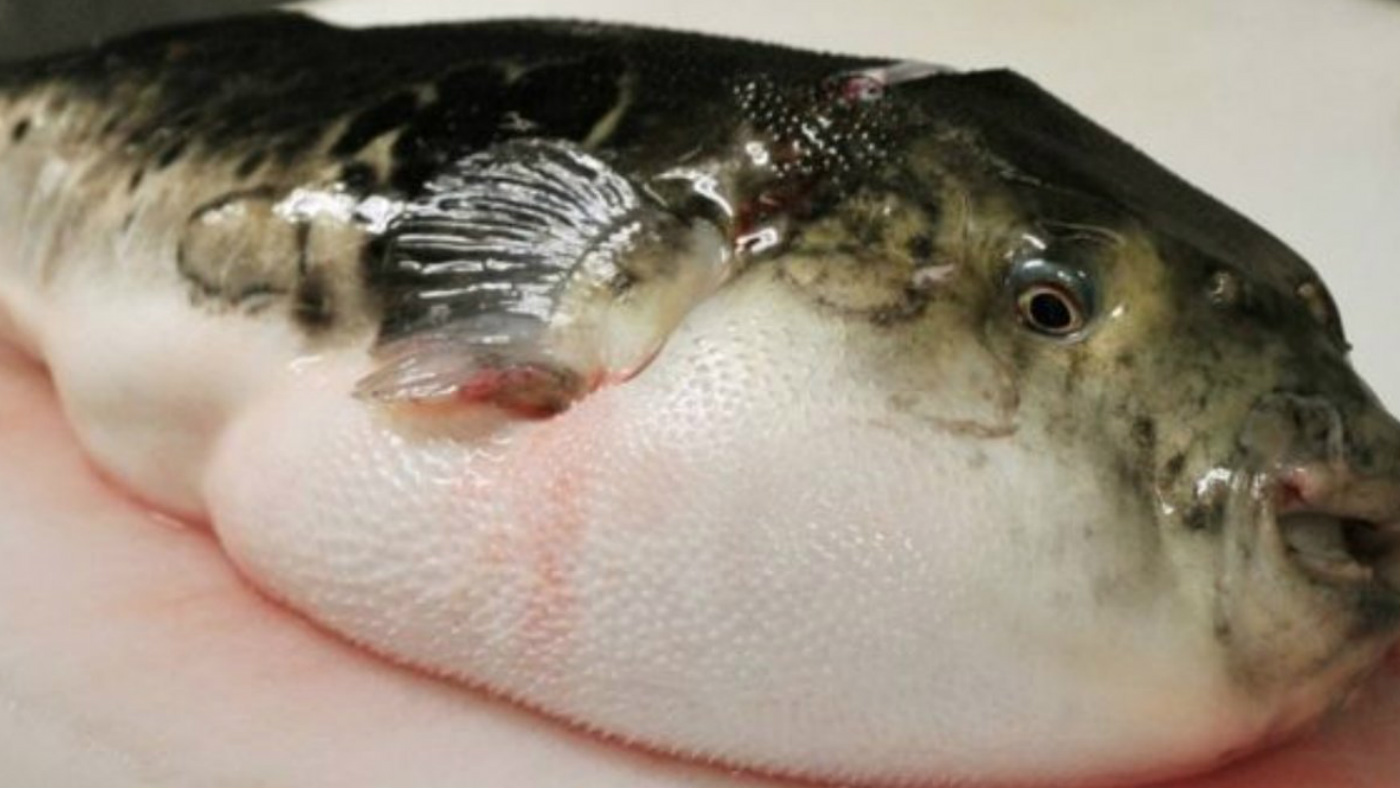Japanese hunt for deadly blowfish sold in supermarket error
Three out of the five pieces of fugu have been accounted for after warnings broadcast across the city of Gamagori

A free daily email with the biggest news stories of the day – and the best features from TheWeek.com
You are now subscribed
Your newsletter sign-up was successful
A Japanese city has broadcast emergency warnings to prevent people consuming blowfish, after potentially deadly portions were mistakenly sold.
Officials in Gamagori activated the town’s emergency loudspeakers - “intended for use in case of North Korean missile attack,” notes The Times - to warn the population about the mistake, and to appeal for the recall of the fugu.
Three of the potentially lethal specimens have been located, but the other two remain at large, local official Koji Takayanagi said.
The Week
Escape your echo chamber. Get the facts behind the news, plus analysis from multiple perspectives.

Sign up for The Week's Free Newsletters
From our morning news briefing to a weekly Good News Newsletter, get the best of The Week delivered directly to your inbox.
From our morning news briefing to a weekly Good News Newsletter, get the best of The Week delivered directly to your inbox.
“We are calling for residents to avoid eating fugu, using Gamagori city’s emergency wireless system,” he said.
“Three packages will be retrieved today but we still don’t know where the remaining two are.”
Fugu “is one of Japan’s most expensive winter delicacies, and is often served in thin slices of sashimi or hot pot,” reports The Guardian.
Japanese chefs are required to obtain a special permit to prepare the fish as “the fish’s skin, intestine, ovaries and liver contain a poison called tetrodotoxin that can be fatal,” adds the paper.
A free daily email with the biggest news stories of the day – and the best features from TheWeek.com
There is no antidote to the poison.
“Fugu lovers say that the presence of a small amount of poison, and the tingling sensation which it produces in the lips and gums, enhances the pleasure of eating the fish,” says The Times.
But other less enjoyable side-effects include salivation, sweating, headache, vomiting, diarrhoea and coma.
Since 2000, there have been 26 deaths from incorrectly prepared puffers, most of them at home rather than in restaurants.
-
 How the FCC’s ‘equal time’ rule works
How the FCC’s ‘equal time’ rule worksIn the Spotlight The law is at the heart of the Colbert-CBS conflict
-
 What is the endgame in the DHS shutdown?
What is the endgame in the DHS shutdown?Today’s Big Question Democrats want to rein in ICE’s immigration crackdown
-
 ‘Poor time management isn’t just an inconvenience’
‘Poor time management isn’t just an inconvenience’Instant Opinion Opinion, comment and editorials of the day
-
 Epstein files topple law CEO, roil UK government
Epstein files topple law CEO, roil UK governmentSpeed Read Peter Mandelson, Britain’s former ambassador to the US, is caught up in the scandal
-
 Iran and US prepare to meet after skirmishes
Iran and US prepare to meet after skirmishesSpeed Read The incident comes amid heightened tensions in the Middle East
-
 Israel retrieves final hostage’s body from Gaza
Israel retrieves final hostage’s body from GazaSpeed Read The 24-year-old police officer was killed during the initial Hamas attack
-
 China’s Xi targets top general in growing purge
China’s Xi targets top general in growing purgeSpeed Read Zhang Youxia is being investigated over ‘grave violations’ of the law
-
 Panama and Canada are negotiating over a crucial copper mine
Panama and Canada are negotiating over a crucial copper mineIn the Spotlight Panama is set to make a final decision on the mine this summer
-
 Why Greenland’s natural resources are nearly impossible to mine
Why Greenland’s natural resources are nearly impossible to mineThe Explainer The country’s natural landscape makes the task extremely difficult
-
 Iran cuts internet as protests escalate
Iran cuts internet as protests escalateSpeed Reada Government buildings across the country have been set on fire
-
 US nabs ‘shadow’ tanker claimed by Russia
US nabs ‘shadow’ tanker claimed by RussiaSpeed Read The ship was one of two vessels seized by the US military